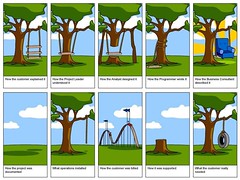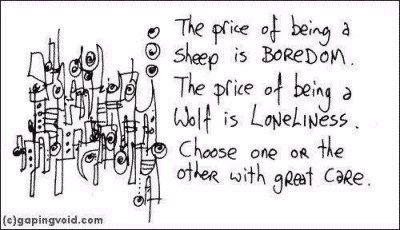If you had asked me six months ago what I would be doing today, I am pretty sure that I would have been wrong. Wrong on a galatic scale.
GPS has stopped working. Maps tell me that even the Dragons don’t come out this far – I saw a few Dragons in cheap suits selling insurance to travellers on the edge of this territory; should have been a clue. Even the people who have better maps than I do are leading expeditions into uncharted sinkholes and rivers that are “in the wrong place”.
There is no way to fully map what is going to come next. There is a general plan, usually a back-of-the-napkin-map from a dive bar in the last “town” (interestingly enough, drawn by a dragon in a cheap suit). Sometimes there is even a guide (for many expeditions, the guide is a one-eyed, deaf jungle-dweller who communicates via a language of spit and arm movements). In the end, it’s up to your cunning and intelligence to avoid a death so embarrassing, your ancestors will need to changes their names.
So, in order to bring order to this trackless territory, I have begun to lay down some simple rules, ones that will help me keep the jungle madness at bay.
A full calendar does not mean an effective day. The last 10 weeks have seen me in meetings up to six hours a day. Most of the meetings were not for extracting information from customers. Some fell into the Kafka-esque “debrief on the project status meeting so we can update the project plan and prepare for the next project status meeting” family.
And I am not alone.
Customers I work with are often in so many meetings that must be attended personally that the only time to get work done is in meetings. If you’re wandering around the trackless wilds spending all your time updating the map, tracking the menu, and inventorying the clean socks, when you look up from your work, you have missed the point of the trip. Or worse, realize that in the minutiae of the “important” stuff, you have reached a place that you can’t get out of without losing a good chunk of your expedition team.
So, why did you bother coming? Showing up is only 10% of being successful. Paying attention is the real 90%.
Guess what? Other people can help you do it all. Guess what? You’re not the only person who can count socks.
I have become very good at delegating, for reasons that are good, under circumstances that were questionable. You came on this expedition with a team. Use it. There are people who can do the things you think only you can do. This frees you up to do the things that you are good at, like avoiding the impassible canyon (unless your team is big on a diet of bark and spider eggs).
And maybe one or two of the sock counters will show promise by projecting the date of clean sock exhaustion and suggesting that a route to clean water be prioritized for everyone’s foot health. This means that they could help take over some of the map-reading so you can collect those bug samples you’re after.
Delegating work does not mean you are failing. Delegating work means that you are succeeding in maintaining a focus on what’s important.
Every day is a learning experience. I am so far into uncharted territories for myself right now that the map isn’t even helpful at figuring out where I came from. All I know is that new challenges pop up every day, and learning from them helps me get by and press forward.





